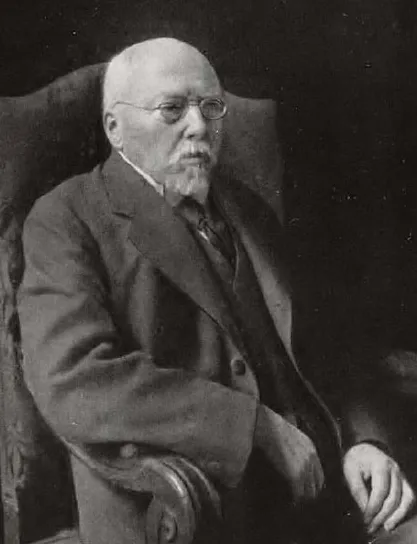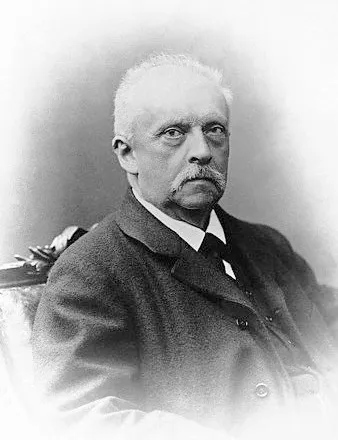
Birth Year: 1843
Full Name: Georg von Hertling
Nationality: German
Profession: Academic and Politician
Position: 7th Chancellor of the German Empire
Death Year: 1919
Georg von Hertling: A Journey Through Power and Change
In the heart of Germany, amidst the swirling currents of political upheaval and societal transformation, a young boy was born in 1843. This boy, Georg von Hertling, would rise to prominence in a world teetering on the brink of modernity. From an early age, he was immersed in a world where academia intertwined with politics a unique duality that would define his career.
Hertling's formative years were spent within the hallowed halls of universities, where he cultivated a passion for philosophy and history. However, it was not merely textbooks that shaped him; rather, it was the vibrant debates that filled lecture rooms and coffeehouses during the mid-19th century. He studied at renowned institutions like the University of Munich a place buzzing with intellectual vigor yet plagued by social unrest.
Despite this rich academic backdrop, it wasn't long before Hertling's interests began to shift towards public service. Who knows what ignited this spark? Perhaps it was witnessing firsthand the fervor surrounding Germany's unification under Otto von Bismarck a monumental event that set Europe ablaze with nationalist sentiment and ideological battles. By aligning himself with these currents of change, Hertling seemed destined for greatness.
As he transitioned from student to scholar in his late twenties, Hertling published several influential works on German philosophy and politics. His eloquence caught the attention of influential circles political factions seeking scholars to bolster their ideologies. Ironically enough, as he delved deeper into academia, political winds began shifting dramatically around him.
The turning point came when Hertling ventured into active politics during a time when Germany faced significant challenges: industrialization reshaping society; labor movements demanding rights; and an empire grappling with its identity amid rising nationalism across Europe.
By 1900s' dawn when technology raced ahead but traditional values still clung fiercely Hertling found himself navigating treacherous waters as a member of Bavaria's parliament and later as Minister-President! His pragmatism became apparent; while many were radicalized by societal changes unfolding before them he maintained an air of cautious conservatism infused with progressive ideas aimed at reforming outdated systems without causing upheaval!
This balancing act garnered respect but also resentment from various factions vying for power amidst escalating tensions surrounding World War I! As Germany plunged deeper into conflict a war heralded by fierce patriotism yet marked by staggering loss the nation looked towards leaders capable enough to steer them through chaos!
In such tumultuous times emerged Georg von Hertling: appointed Chancellor in 1917 after his predecessor’s resignation under pressure brought forth largely by military failures coupled with civil unrest! The weight upon his shoulders must have felt immense leading an empire embroiled in war while simultaneously dealing internal strife threatening stability every day!
Barely settled into office did challenges arise...peace negotiations stalling amidst rising dissent at home alongside faltering troop morale on battlefields abroad it was then one could argue perhaps his greatest test lay ahead: maintaining unity within party ranks torn between advocating peace versus continuing warfare...
A pivotal moment occurred when Hertling faced opposition from both sides the hardliners clamoring for victory regardless cost versus those advocating for diplomacy! In this tug-of-war between ambition and realism emerged cracks within not only coalition governance but national psyche itself! Can you imagine sitting at that desk daily trying reconcile these diverging paths?
The ultimate irony rests heavily upon subsequent decisions made leading up towards downfall too…for while striving hold together fractured alliances slowly eroding confidence citizens had placed upon ruling elite it became clear shifts taking place were beyond any singular individual’s control! The tide turned irrevocably against them with revolutions sweeping through cities like wildfire with soldiers turning their backs abandoning frontlines returning home incited fury among civilians oppressed under heavy burdens imposed taxation coupled disillusionment regarding promises unfulfilled!
A Legacy Built Amidst Chaos
When Germany ultimately surrendered in November 1918 and revolutionaries filled streets demanding change the dust finally settled over chaotic landscape left devastation behind…Hertlings era concluded abruptly as if curtains drawn closed stage dimmed lights extinguished hope once bright illuminating path forward...it must have been surreal watching unraveling dreams shaped decades previously!
The Shadow He Casts Today
If we reflect on how political landscapes evolve now against backdrop rapid technological advancements juxtaposed social justice movements we can draw parallels illustrating similar tensions experienced throughout history echo resonate strongly amongst us still...
"On March 11th marking anniversary death August 1920 citizens gather commemorating legacy despite shadows haunting past choices reflecting ongoing struggles engage better futures!"




